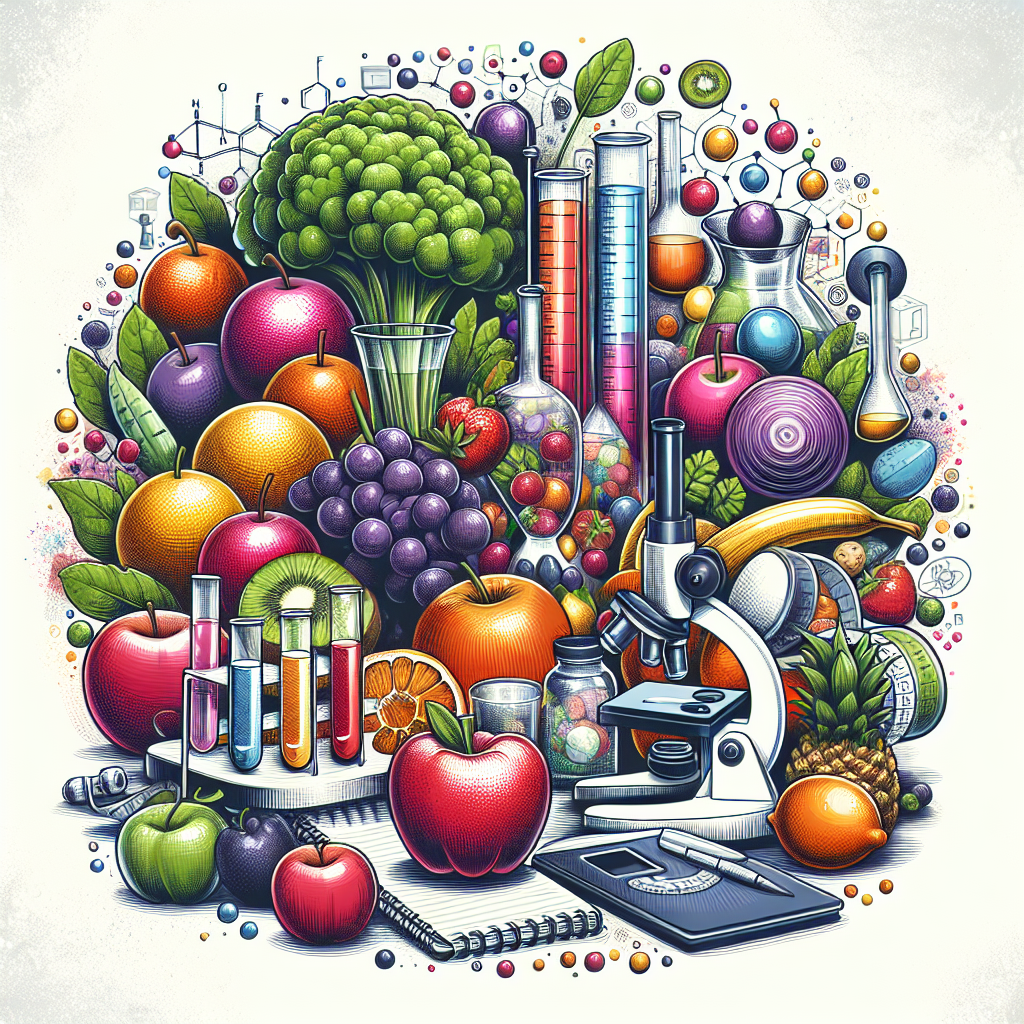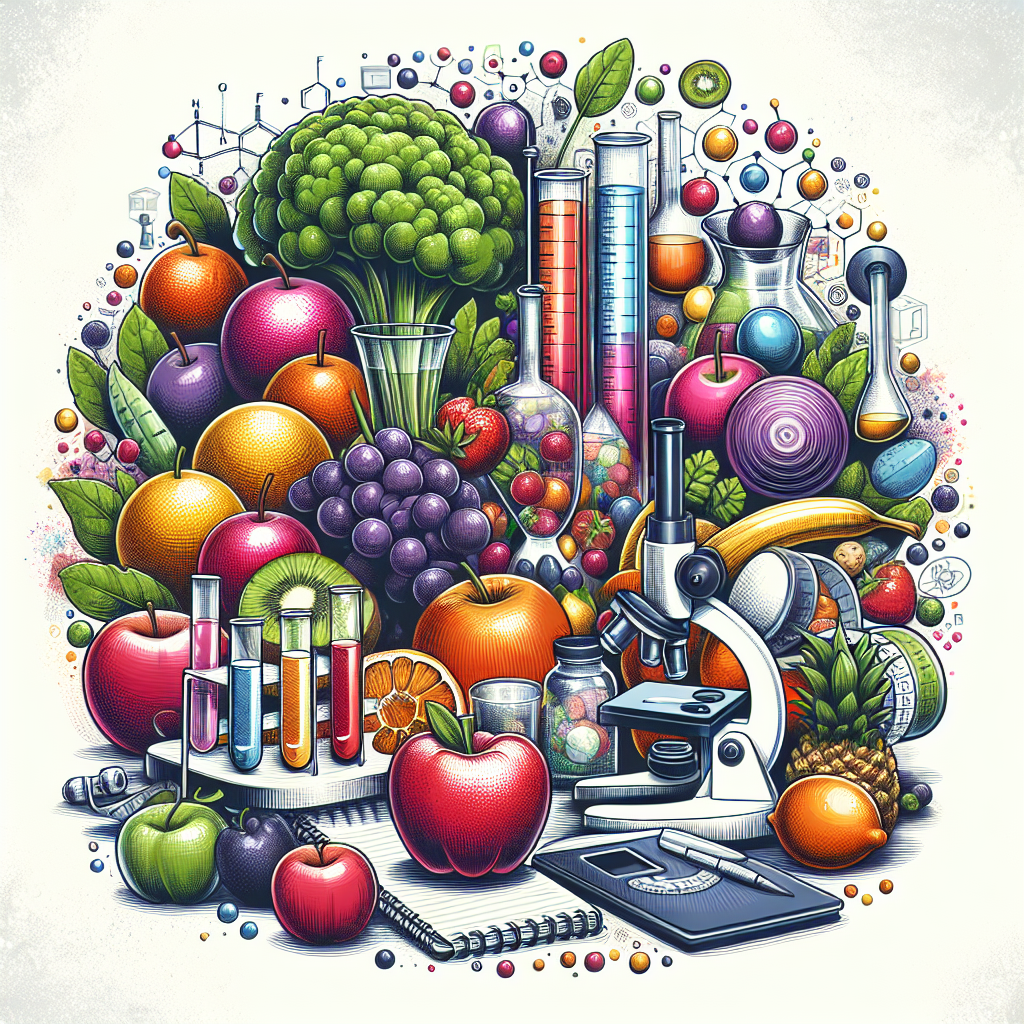If you’ve ever considered jumping on the detox bandwagon, you may have been bombarded with promises of quick fixes, increased energy, and improved overall health. But before you take the plunge, it’s crucial to separate fact from fiction. In this article, we’ll explore the myths and realities surrounding the detox trend, shedding light on what you can truly expect from these popular cleanses. So, let’s set the record straight and uncover the truth behind detoxification.

What is the Detox Trend
Definition of detox
Detox, short for “detoxification,” is a popular health trend that involves eliminating toxins from the body. It typically refers to various dietary and lifestyle changes undertaken to improve overall well-being and cleanse the body of harmful substances. The concept of detoxification has been around for centuries, with many cultures incorporating detox practices into their traditional medicine systems.
Origins of the detox trend
The detox trend gained prominence in the 2000s, with the rise of wellness and self-care movements. It was fueled by celebrity endorsements and the belief that flushing out toxins could lead to numerous health benefits. The trend was further popularized by the media, which often showcased detox diets and methods as a means to achieve quick weight loss and improved vitality.
Detox Claims and Promises
Weight Loss
One of the most common claims associated with detox diets is weight loss. Proponents argue that by eliminating toxins, the body can shed excess weight more effectively. While it is true that some detox plans may lead to short-term weight loss, the long-term effects are often minimal. Most of the initial weight loss is due to water weight and not fat loss.
Improved Energy Levels
Detox diets often promise increased energy levels and improved vitality. Supporters believe that by removing toxins, the body can function optimally, leading to a boost in energy. However, scientific evidence supporting this claim is limited. Any increase in energy levels experienced during a detox may be attributed to factors such as improved hydration and healthier food choices, rather than the elimination of toxins.
Enhanced Skin Health
Clear and radiant skin is another claim often associated with detox diets. It is believed that by removing toxins, the skin’s appearance improves, resulting in a healthy and glowing complexion. While proper nutrition and hydration can undoubtedly contribute to better skin health, the role of detoxification in enhancing skin specifically remains unclear.
Boosted Immune System
Detox diets are also believed to strengthen the immune system. The idea is that by eliminating toxins, the body’s natural defense mechanisms can function optimally, leading to improved immune function. However, there is limited scientific evidence to support this claim. The immune system is a complex network influenced by various factors, including genetics, lifestyle, and overall health, making it unlikely that a short-term detox can significantly boost immune function.
Improved Mental Clarity
Some detox programs claim to enhance mental clarity and cognitive function. It is believed that by removing toxins from the body, brain fog and mental fatigue can be alleviated, leading to improved focus and concentration. While detox diets may promote healthier eating habits, which can indirectly affect brain health, the direct impact of detoxification on cognitive abilities is not well-established.
Alcohol or Drug Detoxification
Detoxification is a crucial step in the treatment of alcohol or drug dependency. Medical detox, supervised by healthcare professionals, involves managing withdrawal symptoms and ensuring the safe removal of substances from the body. This type of detoxification is a critical component of a comprehensive treatment program and should not be confused with the detox diets commonly associated with the wellness industry.
The Science Behind Detoxification
The Role of Organs in Detoxification
The body has several organs involved in detoxification, including the liver, kidneys, lungs, skin, and digestive system. These organs work together to process and eliminate toxins from the body. The liver, in particular, plays a vital role in detoxification by breaking down harmful substances and converting them into less toxic forms that can be eliminated through urine or bile.
Detox Diets and Methods
Detox diets typically involve a period of fasting and the consumption of specific foods or beverages believed to support detoxification. Some popular detox methods include juice cleanses, herbal supplements, and restrictive diets. These methods often exclude processed foods, refined sugars, alcohol, caffeine, and other substances believed to impede the body’s natural detoxification processes.
Effects of Detoxification on the Body
Detoxification can have various effects on the body. While some proponents claim improved overall health and well-being, others may experience side effects such as headaches, fatigue, and gastrointestinal disturbances during detoxification processes. These effects can vary depending on the individual’s overall health, the duration and intensity of the detox, and the specific methods used.
Potential Risks of Detoxification
Detoxification methods, particularly those that involve extreme dietary restrictions or prolonged fasting, can pose risks to certain individuals. People with underlying health conditions, such as diabetes or eating disorders, should approach detoxification with caution and consult with healthcare professionals. Additionally, prolonged periods of fasting or severely restricted calorie intake may lead to nutrient deficiencies and disrupt the body’s natural metabolic processes.
Myth: Detox Diets Rid the Body of Toxins
The Misconception of Toxin Accumulation
One common myth surrounding detox diets is the belief that toxins continuously accumulate in the body and need to be eliminated through specialized diets or cleansing methods. While it is true that certain toxins can accumulate in the body, such as heavy metals or environmental pollutants, the body’s natural detoxification systems primarily handle these processes. The liver and kidneys play a crucial role in filtering and eliminating toxins, rendering the need for extreme detoxification methods unnecessary for most individuals.
Can Detox Diets Really Eliminate Toxins?
Detox diets often claim to eliminate toxins from the body, but the scientific evidence supporting this is limited. The body’s organs, particularly the liver and kidneys, are designed to efficiently handle the elimination of toxins. While certain dietary and lifestyle changes can support these natural detoxification processes, there is no evidence to suggest that specific detox diets or methods are effective at eliminating toxins beyond what the body already does on its own.
Role of the Liver and Kidneys in Detoxification
The liver and kidneys are the body’s main detoxification organs, responsible for filtering and eliminating toxins. The liver metabolizes and detoxifies harmful substances, while the kidneys filter waste products and excess fluids from the blood. These organs continuously work to maintain the body’s internal balance and remove toxins, making the idea of relying on detox diets for toxin elimination unnecessary for most individuals.

Reality: Detox Diets for Weight Loss
Caloric Restriction and Weight Loss
Detox diets often lead to weight loss, but this is primarily due to caloric restriction rather than any specific detoxification effects. When following a detox plan, individuals may consume significantly fewer calories than their usual intake, leading to initial weight loss. However, this weight loss is generally not sustainable in the long term, as it is predominantly water weight and not fat loss.
Water Weight vs. Fat Loss
The initial weight loss experienced during a detox diet is often attributed to a loss of water weight. When the body is in a calorie deficit, it depletes its glycogen stores, which are attached to water molecules. This loss of stored carbohydrates and associated water can give the illusion of significant weight loss. However, as soon as normal eating patterns resume, the body replenishes its glycogen stores, leading to water retention and a return to previous weight levels.
Short-term vs. Long-term Weight Management
Detox diets may provide short-term weight loss benefits, but they are not a sustainable or healthy approach to long-term weight management. Restrictive diets can lead to nutrient deficiencies, slow down metabolism, and promote an unhealthy relationship with food. Instead of relying on detox diets, adopting a balanced and sustainable approach to nutrition, regular physical activity, and overall lifestyle changes is key to achieving and maintaining a healthy weight.
Reality: Detox as a Placebo Effect
Psychological Impact of Detox
Detox diets often have a strong psychological impact on individuals. The belief that one is purging toxins from the body can create a sense of control and empowerment, leading to improved overall well-being. The act of following a detox plan can also provide structure and a feeling of accomplishment. These psychological factors, rather than any specific detoxification effects, may contribute to the perceived benefits of detox diets.
The Power of Belief in Detoxification
The placebo effect plays a significant role in the perceived benefits of detox diets. When individuals believe that they are eliminating toxins from their bodies, they may experience an array of positive effects, such as improved mood, increased energy, and better overall health. The power of belief should not be underestimated, as it can influence physiological and psychological responses, leading to a subjective, but not necessarily a scientifically measurable, improvement in well-being.
Placebo Effect and Its Implications
While the placebo effect can have positive psychological effects, it is important to recognize its limitations. Relying solely on the placebo effect to promote health and well-being may result in neglecting evidence-based approaches to maintaining and improving health. It is crucial to differentiate between the perceived benefits of detox diets driven by the placebo effect and the actual physiological changes that occur through sound nutrition, exercise, and other evidence-based health practices.
Reality: Detox Diets and Nutritional Deficiencies
Lack of Essential Nutrients
Detox diets that severely restrict food groups or promote extended fasting periods can lead to nutritional deficiencies. By eliminating certain foods or entire food groups, individuals may miss out on vital nutrients like carbohydrates, proteins, healthy fats, vitamins, and minerals. These deficiencies can have detrimental effects on overall health and may lead to tiredness, weakness, compromised immune function, and impaired body functions.
Negative Effects on Gut Health
The gut microbiome, which consists of trillions of microorganisms, plays a crucial role in overall health. Many detox diets disrupt the balance of these microorganisms by limiting dietary fiber, which is essential for their growth and diversity. A healthy gut microbiome is associated with improved digestion, immunity, and mental well-being. Imbalances caused by detox diets can have negative long-term effects on gut health.
Implications for Long-term Health
Detox diets that promote extreme measures or eliminate entire food groups can have long-term implications for health. Nutritional deficiencies and disrupted gut health can leave individuals more susceptible to various health conditions. Instead of relying on short-term detox diets, adopting a balanced and varied diet that meets all nutritional needs is crucial for long-term health and well-being.
Myth: Detox Diets Can Cure Diseases
Misleading Claims of Disease Cures
Detox diets often make bold claims of curing diseases ranging from chronic illnesses to cancer. However, these claims are unsubstantiated and misleading. Detoxification is not a proven treatment method for any specific disease. Relying solely on detox diets to cure illnesses can be dangerous and may delay or prevent individuals from accessing evidence-based medical treatments that are essential for their health and well-being.
Inadequate Evidence and Research
Claims that detox diets cure diseases lack adequate scientific evidence and research to support them. The few studies available are often small in scale and lack rigorous scientific methodology. It is important to approach detox diets with skepticism and rely on evidence-based medicine when treating or managing diseases.
Understanding the Role of Detox in Disease Prevention
Although detoxification alone cannot cure diseases, adopting a healthy lifestyle that supports the body’s natural detoxification systems can play a role in disease prevention. This includes maintaining a balanced diet, regular exercise, adequate hydration, and reducing exposure to environmental toxins. By supporting the overall health and well-being of the body, including its natural detoxification processes, individuals can reduce their risk of developing certain diseases.
Reality: Detoxification and Alcohol or Drug Dependency
Medical Detox vs. Detox Diets
Detoxification for individuals struggling with alcohol or drug dependency is a medical process that involves managing withdrawal symptoms and safely removing the substances from the body. This type of detoxification should only be undertaken under the supervision of healthcare professionals. It is crucial to distinguish between medical detox and the detox diets commonly associated with the wellness trend, as they serve entirely different purposes.
Importance of Professional Treatment
Detoxification from alcohol or drug dependency is a complex process that requires professional treatment and care. While detox diets may offer short-term benefits for some individuals, they are not a substitute for professional intervention in cases of addiction. Addiction is a serious medical condition that requires comprehensive treatment, including detoxification, therapy, and support to address underlying issues and promote long-term recovery.
Detoxification as Part of a Treatment Program
Detoxification from alcohol or drug dependency is just the first step in a comprehensive treatment program. After the detoxification process, individuals typically require ongoing therapy, counseling, and support to address the underlying factors contributing to addiction. Detox alone does not address the psychological, emotional, and social aspects of addiction. Seeking professional help and engaging in a comprehensive treatment program is essential for long-term recovery.
The Bottom Line
Detoxification has become a popular trend, with numerous claims and promises surrounding its potential benefits. While some of these claims may be enticing, it is important to approach detox diets with caution and skepticism. The evidence supporting the effectiveness of detox diets is limited, and the potential risks and drawbacks should be considered.
Instead of relying solely on detox diets, it is crucial to adopt a balanced approach to overall health and well-being. This includes consuming a diverse and nutritious diet, engaging in regular physical activity, managing stress levels, and seeking guidance from healthcare professionals. Taking a holistic approach to health will yield more sustainable and long-lasting results than relying on short-term detoxification methods. Consult with healthcare professionals to develop an individualized plan that supports your specific health goals and needs.

